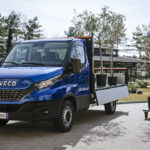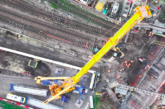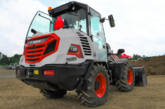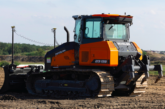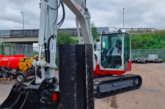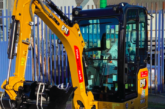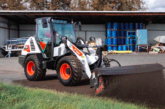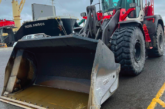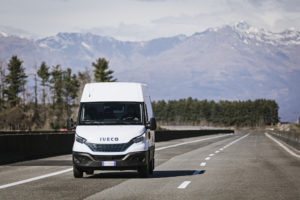 Construction Plant News discovers what sort of Italian Job Iveco has made of its new Daily van.
Construction Plant News discovers what sort of Italian Job Iveco has made of its new Daily van.
Like its most iconic resident, there has always been a shroud of mystery and intrigue surrounding the Turin-based International Vehicle Corporation (IVECO). For more than forty years the company has consistently pursued its own automotive agenda and, in a world of joint collaborations and amalgamations, they remain uniquely independent from any other brand. In fact, from inception, the Daily was and remains the only LCV offering where the chassis is separate from the body, just as in its significantly bigger brothers in the heavy truck world. That makes for greater potential payloads – up to six tonnes and above – thereby providing an alternative to a seven tonne truck without any loss of payload.
The clever bit, of course, is combining all that extra carrying capacity with a vehicle that drives and performs like the more familiar 3.5 tonne panel or dropside vans. The range of Iveco’s flagship van is certainly extensive, but it clearly doesn’t try to be all things to all men. If, for instance, you are looking for the cheapest way to transport tools and materials to site then probably best to look away now because this is not the solution for you.
What you do get, however, is a level of technology and comfort that betrays that HGV heritage, and which has quite obviously now been taken to unprecedented levels with the launch of the 2019 version.
Outwardly little has changed since the major refresh in 2016, but in the ensuing three years Iveco has been doggedly canvasing its customer base on what they would like to see included to improve their ‘Daily’ experience in more ways than one. Not surprisingly this centres around three core elements – driver comfort, fuel economy and technology, both in the cab and in the safety and driver assistance departments.
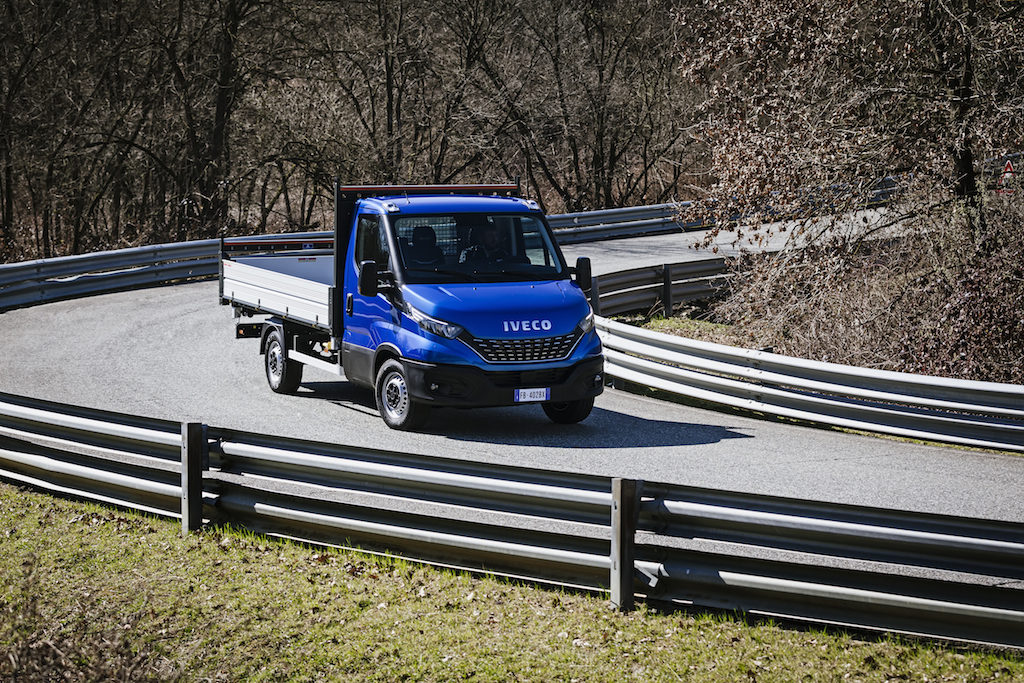
The ‘Change your business perspective’ launch conference was all about megatrends and buzzwords, such as digitalisation, automation, electrification and servicilisation but, in simple layman terms, the object here is to provide a vehicle which significantly increases the owners profitability, which has to be a good thing. Fundamental to this is the engine, which is the first in it segment to comply with Euro 6D/Temp emissions standards, and the only vehicle in class to offer two engine platforms. The New Daily is powered by a choice of large four cylinder diesel engines, the F1A 2.3 litre option with ratings from 116 to 156hp (our particular test vehicle) in both light and heavy duty homologation and the 3.0 litre heavy duty F1C engine with increased performance from 160 to 210 hp. All are available with a choice of eight speed Hi matic automatic or six speed manual gearboxes – more than enough power there to cope with load volumes that start at 7.3m3 and expand to a positively cavernous 19m3, with the claimed added bonus of up to 10 per cent fuel savings on previous models.
The ‘internet of things’ is another one of those great buzzwords of the modern age and it is driving an unprecedented interest in connectivity, and commercial vehicles of all shapes and sizes are by no means exempt. Almost every manufacturer is promising some level of synergy between your smart phone or tablet and your faithful workhorse. At its very best it empowers business owners with the data to make optimum efficiency drives and the new Daily, thanks to a long standing relationship with Microsoft, is very much in on the act. Its Daily Business UP system can plan routes, provide in depth telematics, remote diagnosis and even over the air fixes for a range of potential issues. Some of the finer intricacies of the latest technology would trouble an Oxford Don, let alone a humble construction worker, or indeed trade journalist, but for those managing a fleet of vehicles then it is an option certainly worthy of consideration. Like most things, many of the things we may regard as cutting edge right now will almost certainly become standard practice in a matter of just a few years.
A range of headline grabbing driver assistance systems have also been added as part of the latest refresh, including advanced emergency braking and City Brake PRO, Adoptive cruise control with Queue assist and Active Lane Assist and Crosswind assist. An electric parking brake is another new feature, along with a host of other useful but, not universally essential, optional extras.
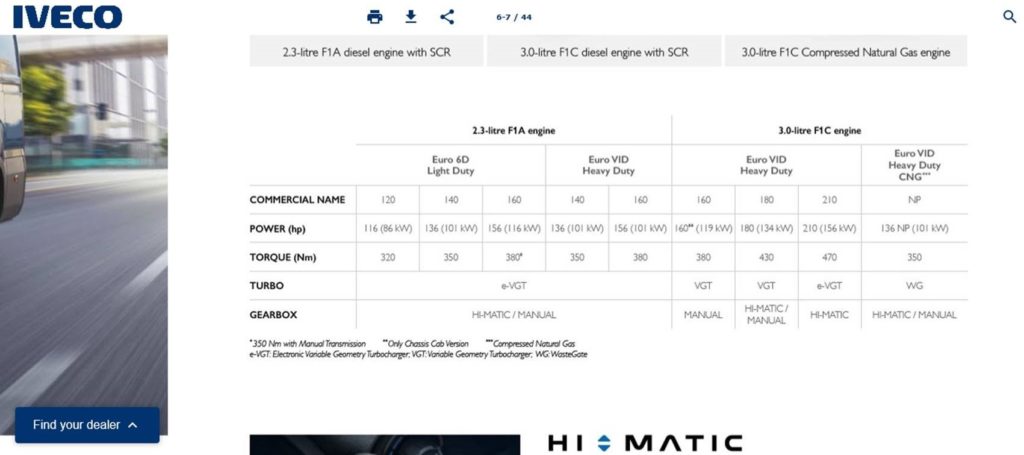
One of the areas which has received notable input from the Iveco boffins is the steering system, which has been completely redesigned to provide axial and angular adjustments to set up the perfect driving position. The smaller leather multifunctional steering wheel feels more car-like and puts a wide range of controls at the finger tips creating more legroom and adding to the overall comfort. The addition of electric power steering is also welcome, which is precise and more reactive to the driver’s inputs, damps vibration and compensates for drift and wheel unbalances.
At its core the Daily remains instantly recognisable, with a tweak to the front grille, which has been extended to increase ventilation while protecting the engine and radiator. New lightweight alloy wheels contribute to optimising payload whilst sharper beam LED lights will last the entire lifespan of the vehicle. A new bumper is divided in to three sections for the first time, so that, in a small accident, only one damaged piece needs to be replaced, reducing repair costs.
And talking of the folding stuff, this new offering from Iveco at a starting price of around £40,000 is clearly a lot of dough, but then this is a vehicle which has a long and well-deserved reputation for delivering the bread on a daily basis!

